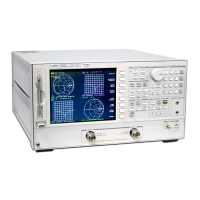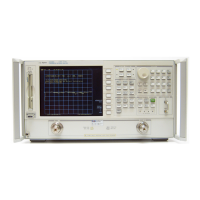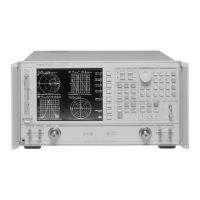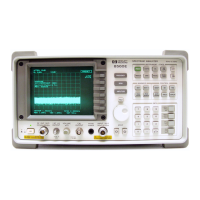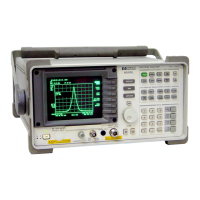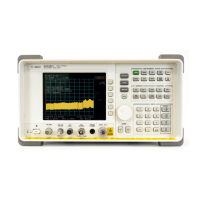2-10
Making Mixer Measurements
Measurement Considerations
Frequency Offset Mode Operation
This mode of operation allows you to offset the analyzer's source by a fixed value, above or below the
analyzer's receiver. That is, this allows you to use a device input frequency range that is different from the
receiver input frequency range.
Mixers or frequency converters, by definition, exhibit the characteristic of having different input and output
frequencies. Mixer tests can be performed using the frequency offset operation of the analyzer (with an
external LO source) or using the tuned receiver operation of the analyzer (with both an external RF and an
external LO source). The most common and convenient method used is frequency offset.
Frequency offset measurements do not begin until all of the frequency offset mode parameters are set.
These include the following:
• Start and Stop IF Frequencies
•LO frequency
• Up Converter / Down Converter
• RF > LO / RF < LO
The LO frequency for frequency offset mode must be set to the same value as the external LO source. The
offset frequency between the analyzer source and receiver will be set to this value.
For a single-sideband mixer measurement, the RF source can be offset in frequency from the input receiver
frequency, allowing for a swept RF stimulus over one frequency range and measurement of the IF response
over another (in this case the output IF).
When frequency offset mode operation begins, the receiver is tuned to the entered IF signal frequencies and
then offsets the source frequency required to produce the IF. Therefore, since it is the analyzer receiver that
controls the source, it is only necessary to set the start and stop frequencies from the receiver.
LO Frequency Accuracy and Stability
The analyzer source is phaselocked to its receiver through a reference loop. In the frequency offset mode,
the mixer under test is inserted in this loop. To ensure that the analyzer phaselocks correctly, it is important
that you use an LO source that has frequency accuracy better than 1 MHz and residual FM < 20 kHz RMS.
Differences Between Internal and External R Channel Inputs
Due to internal losses in the analyzer's test set, the power measured internally at the R channel is 16 dB
lower than that of the source. To compensate for these losses, the traces associated with the R channel
have been offset 16 dB higher. As a result, power measured directly at the R channel via the R CHANNEL IN
port will appear to be 16 dB higher than its actual value. If power meter calibration is not used, this offset in
power must be accounted for with a receiver calibration before performing measurements.
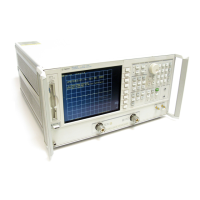
